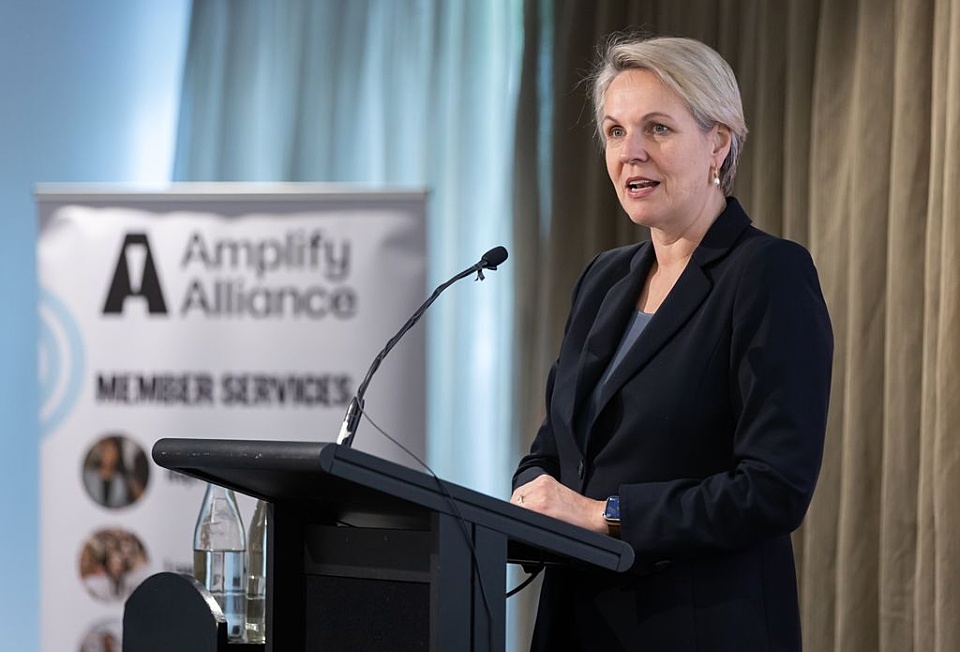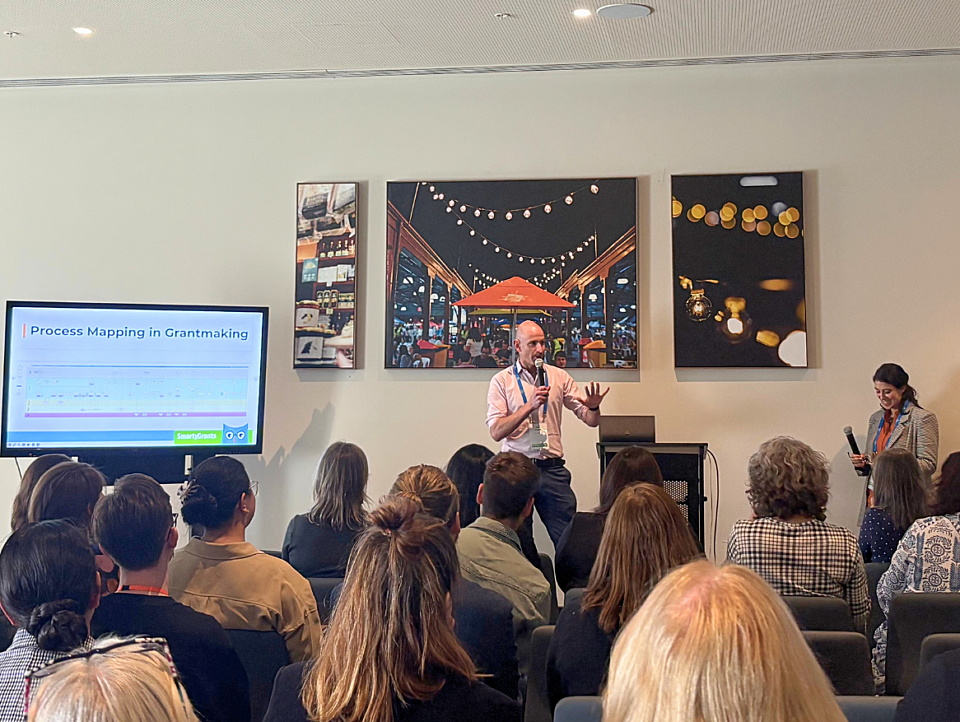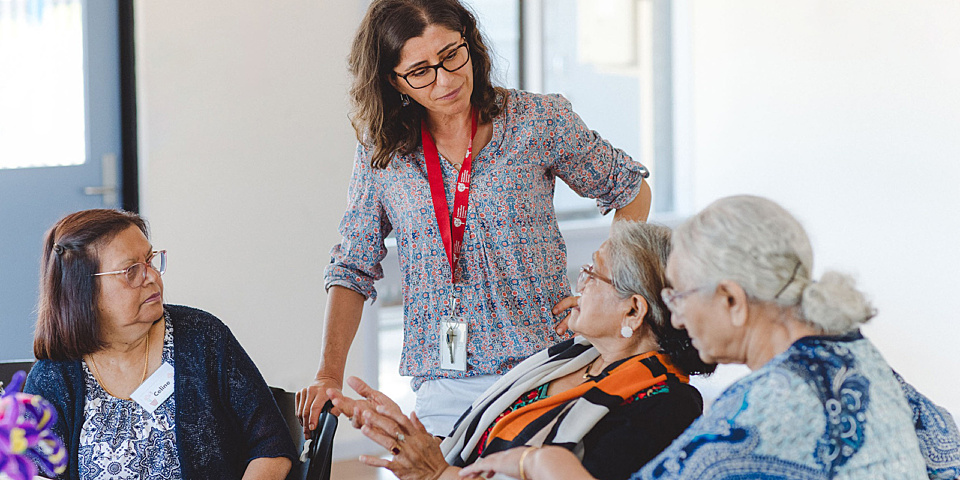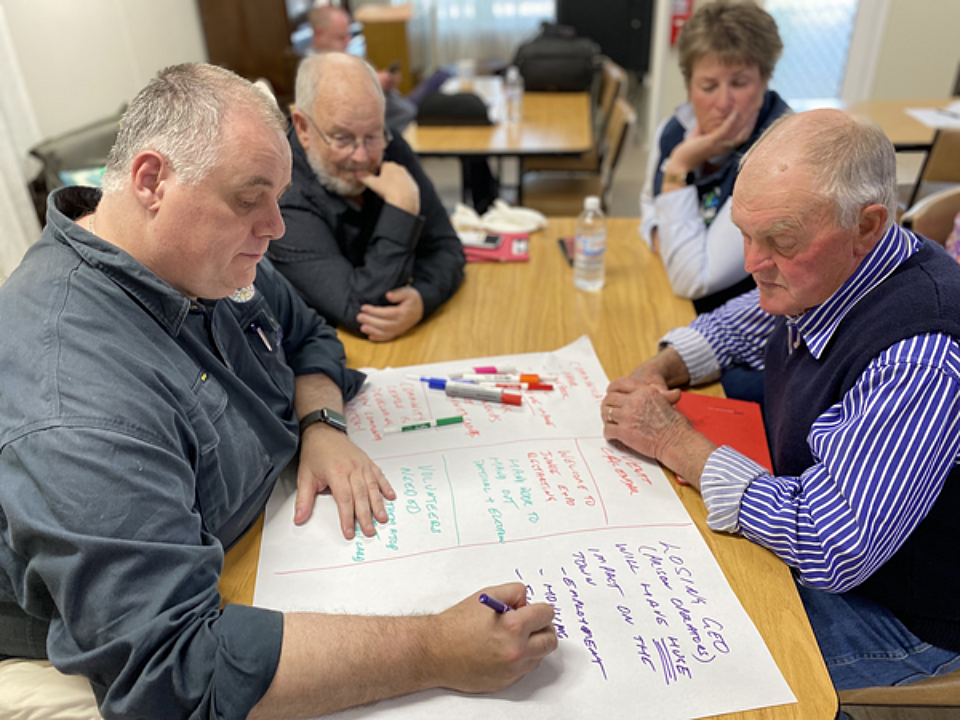
Feds flag human services grants shakeup
Posted on 15 Dec 2025
The federal government is trialling longer-term contracts for not-for-profits that deliver…
Posted on 11 Jun 2025
By Matthew Schulz, journalist, SmartyGrants

Australia’s grantmaking community showed a strong appetite for boosting the impact of its funding at the sold-out Grant Impact Forum hosted by SmartyGrants and the Learning and Evaluation for Australian Funders (LEAF) network.
With more than a dozen speakers and 80 delegates in attendance, the forum brought together government and philanthropic grant specialists to explore practical tools and real-world examples of assessing impact.
Breakout sessions challenged funders to grapple with complex scenarios when assessing whether funding was effective.
The event brought together a diverse cross-section of grantmakers – from local councils, state departments, family foundations and philanthropic trusts – and highlighted the sector’s growing desire to rethink how it measures, evaluates and improves impact.

“Today felt like a turning point in how we talk about impact in grantmaking,” said Jen Riley, chief impact officer at SmartyGrants, after the event.
“We brought everyone together, and what stood out was the hunger for change – people want to do grantmaking better.”
Riley said that the forum tackled long-standing challenges, including reporting burdens, inconsistent evaluation practices and lack of coordination between funders. Workshops and peer-to-peer sessions focused on increasing the power of grantees and beneficiaries.
“What’s blown me away is how broad the group is,” Ms Riley said. “There are so many perspectives, which makes it tricky, but also rich with opportunity.”
Participants wrestled with questions such as: How much evidence is enough? What is the purpose of reporting? And who is it really for?
Riley said those discussions showed there was a desire to streamline data, reduce duplication, and ensure that evaluation helped with both accountability and learning, and wasn’t just a matter of compliance.
“There was a real sense that we’re starting to form shared principles,” Ms Riley said. “People are taking these ideas back to their organisations. Some are planning to review their reporting templates next week.”
“We need to make sure the grant dollar is making a difference. That means less red tape, more listening, and better learning systems.”

The forum also emphasised collaboration across sectors. First Nations speakers such as Dr Skye Trudgett, from Kowa impact measurement, highlighted the importance of data sovereignty and culturally-grounded evaluation. Trudgett said that too often non-Indigenous evaluators wrongly assumed evaluation was absent when it did not conform to “Western” thinking.

Attendees explored how funders from different sectors – government, philanthropic and community – could work together without compromising rigour.
The strong turnout and fast ticket sales signalled the sector’s readiness to move forward. “It sold out four weeks ago. There’s a real hunger for this,” Ms Riley said, hinting that future forums may be held in other states.
“We need to make sure the grant dollar is making a difference. That means less red tape, more listening, and better learning systems.”
Experts participating in the event included:

LEAF network manager Liz Branigan, whose network is supported by Philanthropy Australia, said she hoped attendees would come away understanding that “evaluation is good, it's useful, it's necessary, and it doesn't have to be as hard as you think”.
“Really it's just about trying to work out what you want to do with a project or a program of activities or a grant and work out whether you've done that, if it went well, if it didn't go so well, and what you could do better next time.”

Dr Jess Dart, founder of Clear Horizons and co-author of an evaluation guide translated into 12 languages, said she hoped the grantmakers present would think “in a much broader way” about their work after the intensive forum.
Greater self-scrutiny would ensure grantmakers would better understand the communities they were working with, preferably in partnerships, she said.
Dart also said bringing government and philanthropic funders together was a major achievement.
“I love the fact that we've got philanthropists together in the room because it's such an amazing opportunity to influence how private funds are spent in Australia. There's so much potential because they can take more risks than government, and they can work on things that really matter … at the earliest stage of the innovation cycle.”

The managing director of the Australian Centre for Evaluation (ACE), Eleanor Williams, said the federal government’s increased focus on productivity and its largely economic measures did not preclude the use of broader evaluation tools that assessed both quantitative and qualitative measures.
“I think there are good quantitative ways of measuring productivity. They're pretty well established, but we're also really passionate about mixed methods evaluation … trying to get under the hood of what's happening, what's changed, how and why. I think if you can bring together the best of both worlds of quantitative and qualitative evidence, that's where you'll get that really rich picture of what's changing and what's driving it.”
Williams agreed that some of the most interesting conversations at the forum had been about assessing and learning from “failures” in programs.
“We’re doing a real push for transparency and just trying to get more of a culture of open learning … because we really can't learn from each other if we're not prepared to share our failures as well as our success.
“One of the things that the Australian Centre for Evaluation is doing is creating an evaluation repository, so a central place where you'll be able to find all government evaluations, so we do keep learning and sharing those findings, and not tucking them away if they're slightly inconvenient, and just getting more used to sharing failure.”

A former Professor of Public Sector Evaluation at RMIT University and the Australia and New Zealand School of Government (ANZSOG), Patricia Rogers, speaking on the sidelines of the forum, said funders should employ evaluation design effectively and separately for each project.
“Any evaluation,” she said, “should be very clear about why we’re doing this, who is going to use it, what our questions are, what our timeline is, what our resources are, and an understanding of the nature of what we’re evaluating.”
Social Impact Measurement Network Australia co-chair Simon Faivel said he believed there would be an increased push for “better evidence” by governments seeking proof that their programs were working. He predicted that new technology would give evaluators a head start, and he said evaluation should always be “thoughtful and proportionate”.
“We have methods galore, and we can have all sorts of frameworks, but it’s the thinking that goes into that, and the explanation you have about why what you’re doing might result in certain types of changes, that is important.”
Further insights from the forum will be published in coming editions of Grants Management Intelligence.

Posted on 15 Dec 2025
The federal government is trialling longer-term contracts for not-for-profits that deliver…

Posted on 15 Dec 2025
A Queensland audit has made a string of critical findings about the handling of grants in a $330…

Posted on 15 Dec 2025
The federal government’s recent reforms to the Commonwealth procurement rules (CPRs) mark a pivotal…

Posted on 15 Dec 2025
With billions of dollars at stake – including vast sums being allocated by governments –grantmakers…

Posted on 15 Dec 2025
Nearly 100 grantmakers converged on Melbourne recently to address the big issues facing the…

Posted on 10 Dec 2025
Just one-in-four not-for-profits feels financially sustainable, according to a new survey by the…

Posted on 10 Dec 2025
The Foundation for Rural & Regional Renewal (FRRR) has released a new free data tool to offer…

Posted on 10 Dec 2025
A major new report says a cohesive, national, all-governments strategy is required to ensure better…

Posted on 08 Dec 2025
A pioneering welfare effort that helps solo mums into self-employment, a First Nations-led impact…

Posted on 24 Nov 2025
The deployment of third-party grant assessors can reduce the risks to funders of corruption,…

Posted on 21 Oct 2025
An artificial intelligence tool to help not-for-profits and charities craft stronger grant…

Posted on 21 Oct 2025
Artificial intelligence (AI) is becoming an essential tool for not-for-profits seeking to win…